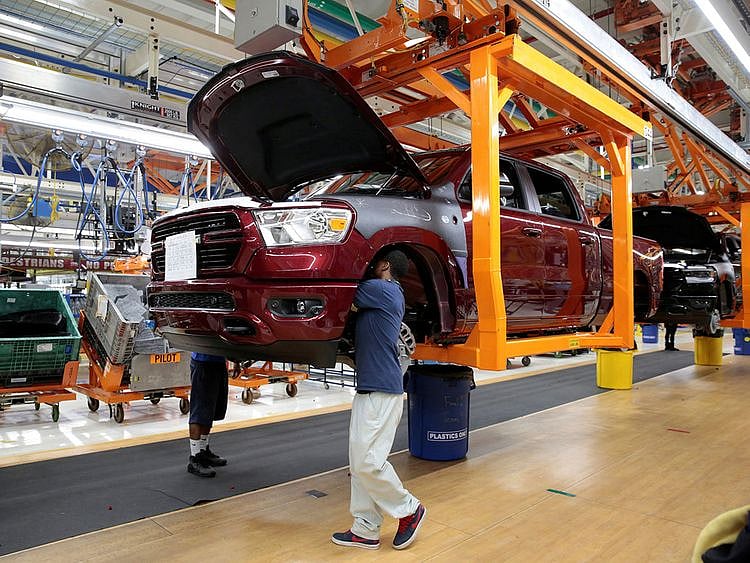Well that was abrupt.
Fiat Chrysler Automobiles NV’s decision to abandon merger talks with Renault SA has left all parties with souffle on their faces. Both companies now have much work to do to address the respective frailties their failed merger talks have laid bare. There are questions too for the French president, Emmanuel Macron, to resolve.
The three-page proposal Fiat published a fortnight ago sketching out the merger of equals made it all sound so simple. Renault boss Jean-Dominique Senard and Fiat scion John Elkann should have known that the serenity of their private tete-a-tetes ahead of the deal’s announcement wouldn’t survive the intervention of industrial politics.
Proposing a merger with Renault was bound to further unsettle the French carmaker’s Japanese alliance partner Nissan Motor Co Ltd., which is still grappling with the issues laid bare by the downfall of the Renault-Nissan architect Carlos Ghosn. And Fiat was always going to have to reckon with the French state, which owns a 15 per cent stake in Renault and is acutely sensitive about subjects such as job guarantees and governance.
So-called mergers of equals are never easy, as the epic falling out at the Franco-Italian eyewear producer EssilorLuxottica SA makes painfully clear.
Still, having done much of the painstaking groundwork and with the stock market reacting positively, Fiat’s decision to walk away seems rash (indeed, the French have left open the door for another offer).
Could the Italians really not have waited a few more days so that Paris and Nissan could get more comfortable?
Perhaps Elkann has recognised, belatedly, that a Franco-Italian-American-Japanese automaker with the French state as an anchor shareholder would have had too many cooks in the corporate canteen. This isn’t the first time Fiat has proposed a merger and been thwarted: The late Sergio Marchionne also tried and failed to get hitched to General Motors Co.
So Fiat’s promise to revert to delivering on its independent strategy feels a bit deflating. This process has reminded investors that Fiat hasn’t invested enough in electric vehicles and that the overall carbon emissions from its vehicles are too high. For all its strengths in trucks, SUVs and the US market, Fiat also brought a weaker balance sheet to the party. It has hefty pension obligations and a big negative working capital position.
And Renault? The merger discussions have exposed just how little investors think of the French group. Subtracting its stake in Nissan, its cash, and other investments, shareholders accord no value whatsoever to Renault’s carmaking operations. That’s embarrassing, to put it mildly, and Senard will be under even more pressure to change the stock market’s view.
The trouble is, Renault shares may now bake in an even greater discount than before to reflect the fact that M&A might be a non-starter.
And what of France? The deal’s swift unravelling makes Macron’s posturing about wanting to reduce the state’s holdings in national champions — and to build European champions instead — look a little hollow. When push comes to shove, Paris will always revert to angling for every conceivable advantage and defending jobs.
Perhaps Fiat will pick up the pieces and make a third stab at an international merger. There was speculation that Peugeot SA could be a potential partner, although the French state owns a stake there too. Elkann may prefer to give Paris a wide berth after this.
There’s no question that it makes sense for automakers to pool the financial resources to invest in future technology. But savings can be achieved by loose alliances, such as the electric technology tie-up that BMW AG and Jaguar Land Rover announced.
The failure of Renault and Fiat to reach the finish-line might set back the cause of car industry consolidation. But in view of everything that can go wrong, and the inherent politics that bedevil big cross-border manufacturers, maybe that’s inevitable.
Sign up for the Daily Briefing
Get the latest news and updates straight to your inbox
Network Links
GN StoreDownload our app
© Al Nisr Publishing LLC 2026. All rights reserved.
